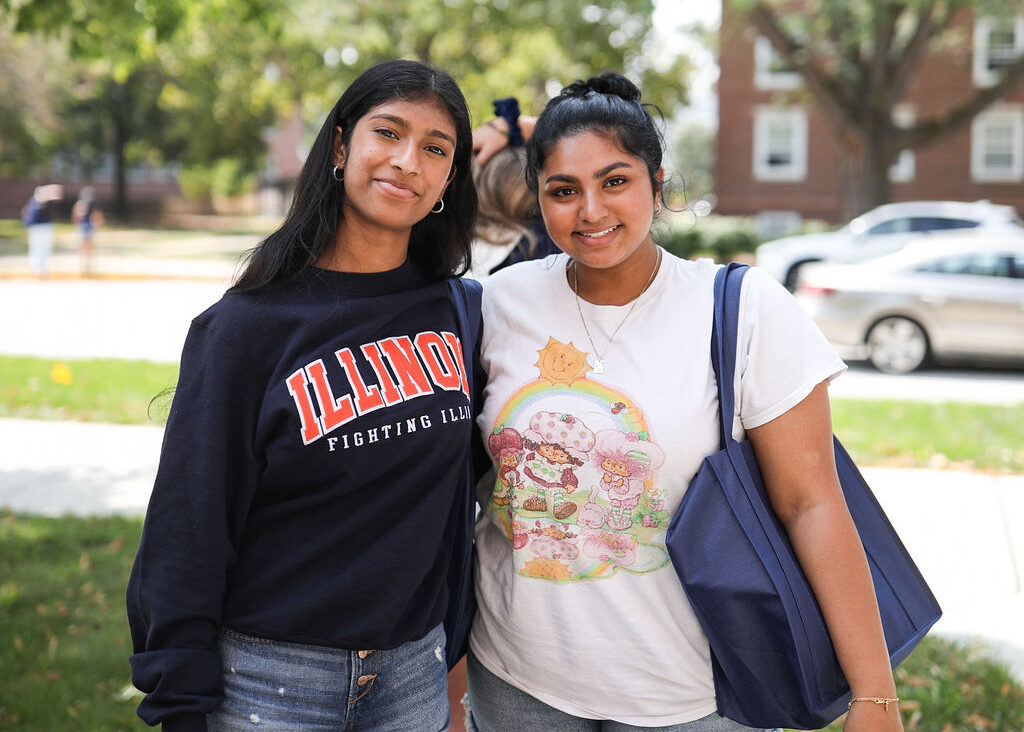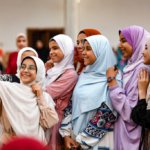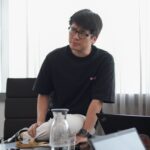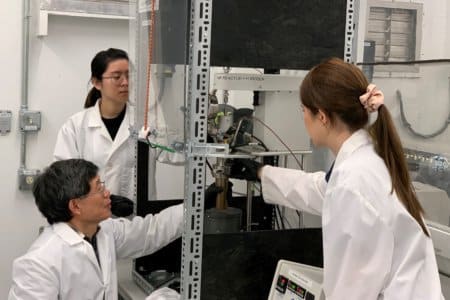Originally from Benin, a French-speaking country in West Africa, Libak Abou was introduced to rehabilitation through a personal experience. As a child, he witnessed one of his closest friends sustain a spinal cord injury. Abou saw how deeply the injury and subsequent use of a wheelchair affected the entire family. In their city, there were no specialists trained to support people with neurological conditions. While searching for help, he discovered kinesiology and physical therapy.
Seeking to empower people like his friend, he began studying at the University of Benin and later earned a scholarship to continue his education in Cuba at the University of Health Sciences of Cienfuegos. There, his interest in neurological rehabilitation grew stronger. He then moved to Brazil to pursue a master’s degree in neurological physical therapy, laying the groundwork for his future in the field.
During his master’s research, which focused on improving how sitting balance is assessed in people with spinal cord injury, he found a paper by Dr. Laura A. Rice and Dr. Jacob Sosnoff. Their work resonated with him and aligned closely with his interests. Encouraged by what he read, he reached out to them and shared his research ideas.
Their positive response motivated him to apply to their programme, which ultimately brought him to the University of Illinois Urbana-Champaign (Illinois). “Today, I am proud to conduct research aimed at improving the lives of people with disabilities around the world, something made possible by the strong training I received at Illinois,” he says.
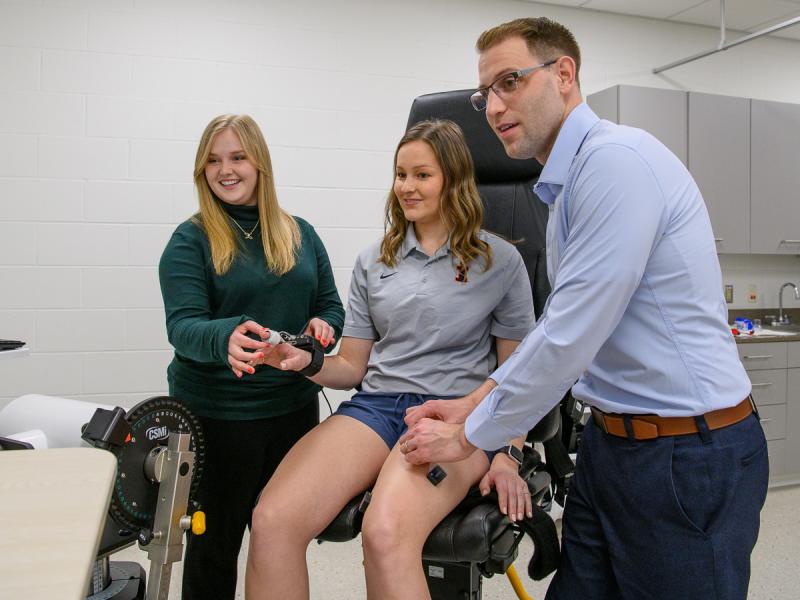
At the University of Illinois Urbana-Champaign’s Department of Health and Kinesiology, experts work together to improve lives through better movement and mobility. Source: University of Illinois at Urbana-Champaign
At Illinois’s Department of Health and Kinesiology, Abou found a place that matched his passion and offered opportunities to collaborate with leaders in the field. The PhD in Kinesiology at Illinois trains candidates for careers in research and teaching, with specialisations in areas like biomechanics, exercise physiology, motor control, brain health, and the teaching of physical education and physical activity (pedagogy).
Abou had already been involved in research before joining Illinois, but the programme pushed him further, offering the highest level of training and access to cutting-edge technology. Working alongside experts in spinal cord injury rehabilitation expanded his thinking and inspired new ideas for his own work.
“As a result, I became committed to developing person-centred interventions that are not only evidence-based but also tailored to enhance the overall well-being and health of the individuals they are designed to serve,” he says.
Along the way, he became a better teacher and mentor. Today, he is a tenure-track Assistant Professor in the Department of Physical Medicine & Rehabilitation at the University of Michigan. His current research explores the link between nociplastic pain and physical activity levels. “Given that physical activity plays a key role in symptom management for people with multiple sclerosis, these findings point to a critical gap in our current approach to care,” Abou says. “This finding has laid the foundation for a new and promising area of research that I am now actively exploring.”
Just as Illinois helped shape Abou’s path, it also had a lasting impact on Laura Marcela Quintero Silva, who completed a PhD in Community Health. When she discovered the programme, she felt an immediate connection. “The faculty’s research and the programme’s interdisciplinary approach aligned perfectly with my goal of understanding and improving health systems to better serve diverse communities,” she says.
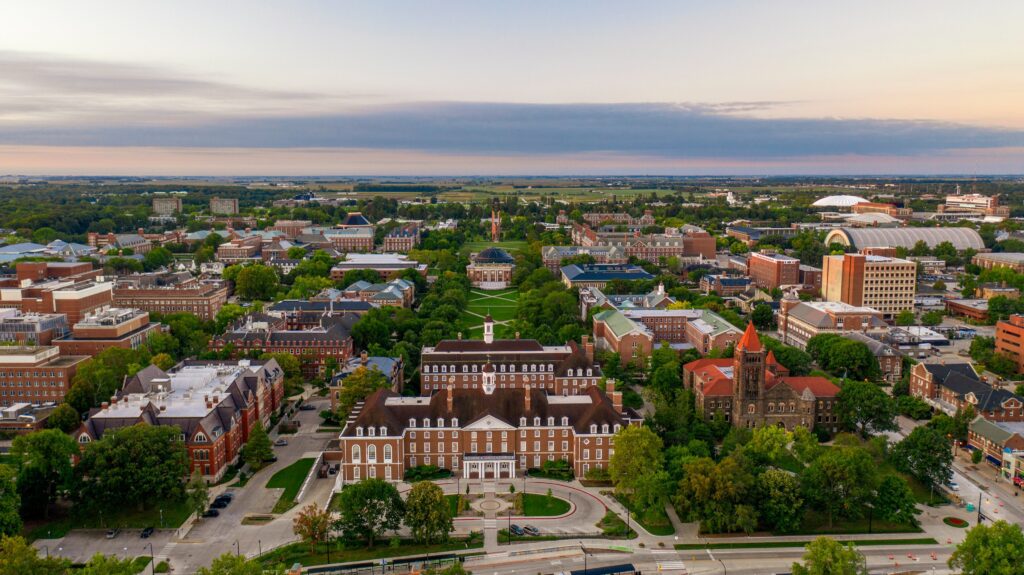
To support diverse career goals, UIUC’s Department of Health and Kinesiology offers programmes in Kinesiology, Community Health, and Interdisciplinary Health Sciences. Source: University of Illinois at Urbana-Champaign
Silva came from a background in psychology, where she had already developed an interest in individual experiences of illness and care. The Community Health programme helped her widen that focus. It taught her to examine the broader systems and structures that influence those experiences. Through a combination of coursework, seminars, and collaborative discussions, she honed the ability to critically examine public health issues while maintaining a foundation in empathy and cultural awareness.
One of the programme’s strengths, Silva says, was how it emphasised values like cultural context, social responsibility, and community engagement. These principles helped her understand how health research can make a real difference when it’s connected to the people it serves. The faculty at Illinois also played a major role in shaping her approach. “My professors all brought different perspectives to the table, whether it was their way of thinking, their teaching style, or their professional and academic experience, and each helped shape how I view research, learning, and the role of health professionals in society,” she says.
A lesson that stayed with her was the importance of seeing the people behind the research. “My advisor and mentors continuously encouraged me to look beyond theory to consider the real people and communities behind the data,” Silva says. That balance between rigorous academic inquiry and genuine human connection continues to guide her work today.
Silva is now a Postdoctoral Fellow in Qualitative Health Research at the Social Connections Lab, part of the University of Ottawa Heart Institute. She designs and leads studies on the lived experiences of people with cardiovascular disease, focusing on often-overlooked issues like bereavement support for spouses, understanding how patients with young children manage a new diagnosis, and investigating the impact of loneliness among individuals with heart disease. Through these projects, she continues to apply what she learned at Illinois, bridging academic research with the real-life challenges faced by patients and families.
Learn more about University of Illinois Urbana-Champaign’s Department of Health and Kinesiology.
Follow the University of Illinois Urbana-Champaign, College of Applied Health Sciences on Facebook, X, LinkedIn, and Instagram.

